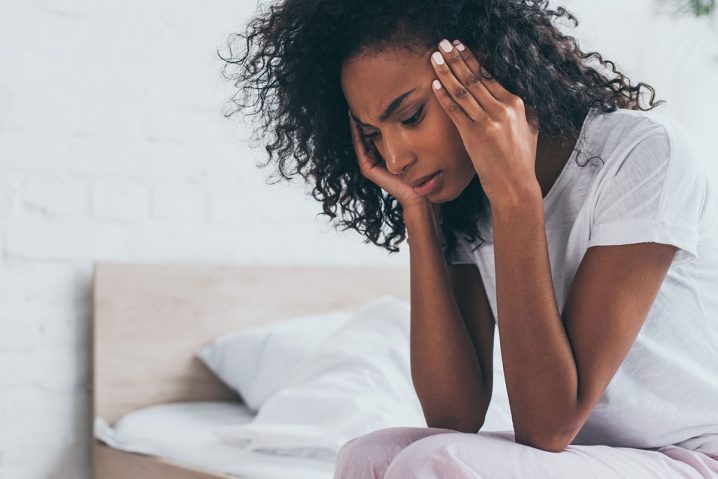With the influx of kava bars and the controversy surrounding this mysterious drink, kava has become a frequent topic in recovery circles. As more people wonder about natural and herb supplements for various ailments, kava is becoming very popular. But is it addictive? Some people are talking about kava addiction and its dangers.
If you or a loved one are seeking a drug addiction treatment program in Florida, reach out to us today. Call 866.308.2090 to learn how Lighthouse Recovery Institute can help.
What Is Kava?
While kava root is part of the Western Pacific and Pacific Islands traditions, where it grows naturally, it’s only a recent addition to the American drug scene. People use kava root to brew tea, which people drink for its sedative properties. In a more traditional form, people chew the kava roots. In modern research, kava could have the “potential for addiction” due to the mild, calm euphoria it produces, as well as its effects on the nervous system.
Why Do People Use Kava?
To avoid opioids, prescription painkillers, and alcohol to treat chronic ailments, people are looking at herbal remedies and other supplements to relax. Because of this, more and more people are turning to herbal remedies like kava. People use kava to treat anxiety disorders in most cases.
However, as with most supplements, there’s little evidence to understand their effects. So far, researchers believe kava can help with symptoms of anxiety by increasing GABA neurotransmitters, similarly to Valium.
How Do People Take Kava?
Kava is available in various forms. Native people will chew the roots or turn them into a pulp and add water. Some people brew kava and take it as tea. Nowadays, kava powder is available in supplement stores as pressed capsules.
Understanding the Effects of Kava and Kavalactones
Kavalactones are the active ingredient in kava plants. While research is limited, people believe they help the limbic system. This is the system responsible for anxiety and fear. When kavalactones bind with brain receptors, they potentially could reduce anxiety.
Each kava plant has different percentages of kavalactones. These are the ones that determine which type of kava plant is the strongest or which might yield specific effects. Researchers label this as a chemotype or the difference in percentages of kavalactones.
Most people believe that kava will make them feel high. While people experience a similar buzz to alcohol, it won’t be a “high” like most drugs. The effects of kava are different for each person, and it depends on the amount they ingest.
The kavalactones might produce a tingling or numb sensation in the lips and tongue for a few minutes. Most people will feel warm and tingly as their muscles relax. Because kava is an anti-anxiety remedy, people feel overall calmer, more relaxed, and a bit euphoric. However, this doesn’t mean kava makes you high.
The Potential Risk of Kava Abuse and Addiction
As with many herbal remedies and supplements, the side effects and risks of kava vary tremendously. So far, the most significant potential threat is the higher risk of producing liver toxicity and liver problems.
In the US, the FDA warns people with liver disease or liver problems to avoid medicines like kava. There are some instances of liver damage or failure due to kava use. This is why kava is a banned supplement in various countries.
Kava is known for stimulating dopamine receptors in the brain. This is the same side effect linked to addictive drugs like opioids, cocaine, heroin, and more. Long-term kava users can develop a tolerance and continue to increase their kava dose to reap the same effects.
While kava can be safe to use for the average person, those with addictive behaviors can easily find themselves struggling with kava addiction. Any substance that produces even mild effects has the potential for abuse. Some people might even experience withdrawal symptoms when they abruptly stop taking kava.
Is Kava Legal?
In the United States, kava is legal and sold as a dietary supplement. Kava is often marketed to help people relax and sleep better. However, in 2002, the FDA released a warning about the safety and effectiveness of kava products.
The FDA mentioned that kava could adversely affect the liver and pointed to reports from other countries citing hepatitis, cirrhosis, and liver failure from kava use. So far, only Germany, France, Canada, Switzerland, and the UK have regulations towards kava.
Is Kava Safe?
Unfortunately, there’s little evidence to suggest that kava is entirely safe. While there are reports of liver damage and failure, these reports are also limited. Because kava is a not controlled supplement, there’s not enough research available to understand the reach.
People often combine kava with alcohol and other drugs to enhance their effects. These combinations can be potentially fatal and lead to overdose and other health concerns. Drinking alcohol with kava can slow down the nervous system and lead to fatal effects.
Not to mention, for people in recovery, kava can become the getaway to relapse. People struggling with substance use disorders often let their addictive behavior take over and might abuse kava and other substances.
Get Help at Lighthouse Recovery Institute
At Lighthouse Recovery Institute, we avoid introducing potentially dangerous substances that can lead to relapse. We believe in reinforcing relapse prevention skills and lifestyle and wellness alternatives to help those in recovery successfully manage their addiction.
If you or someone you know is struggling with drug abuse, please contact us today at 866.308.2090. Our goal is to help you find the right path toward addiction recovery.





